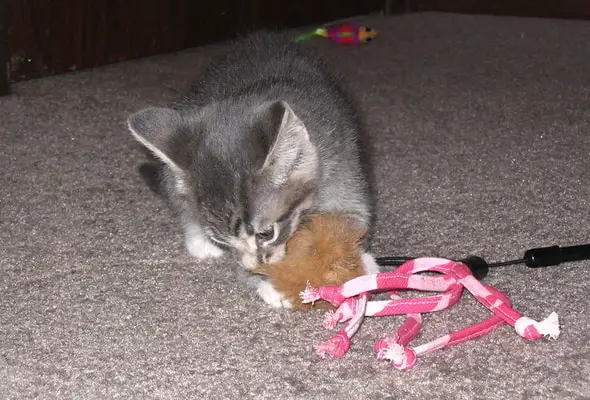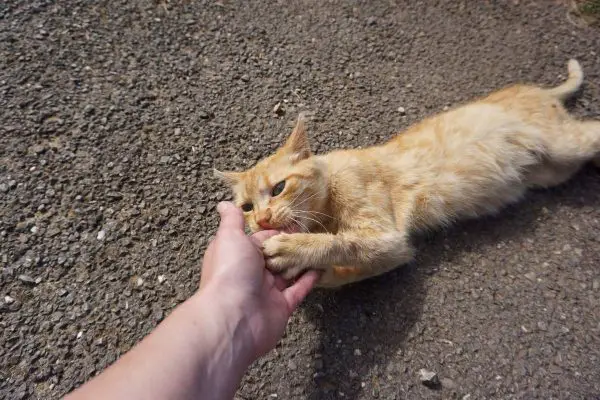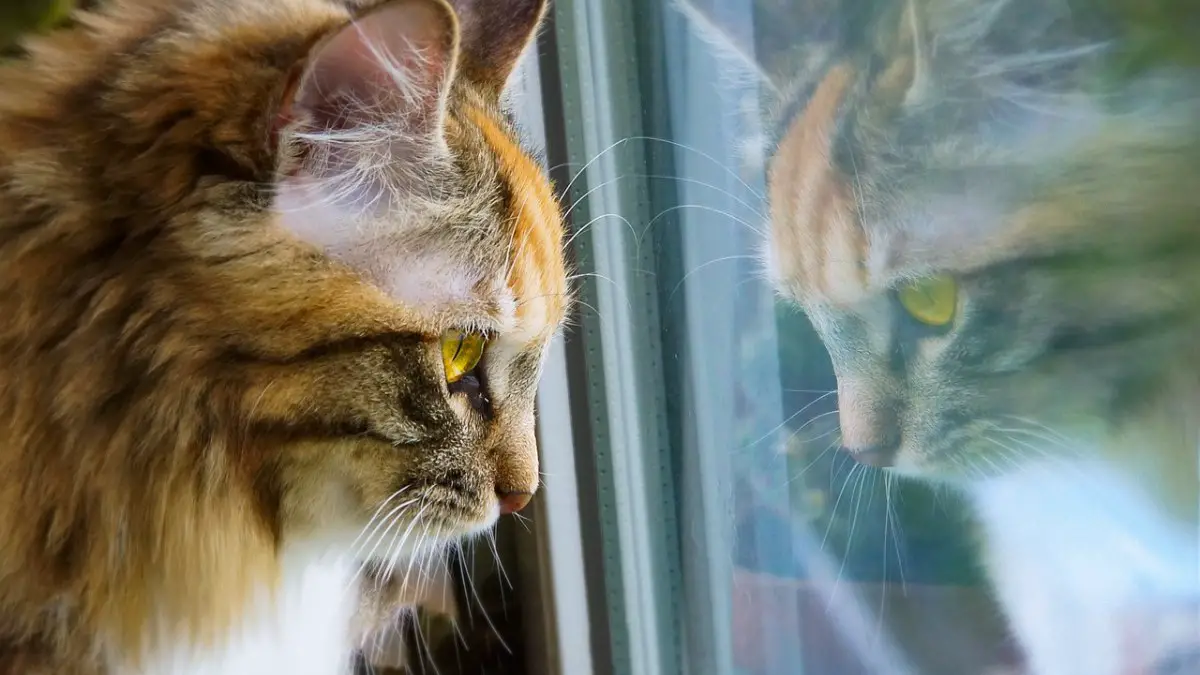Leaving your feline friend home alone is a common scenario for many cat owners. But how long can cats be left alone before they become anxious? This article will go over the factors that influence how long a feline can be left alone, as well as offer advice on how to keep your pet happy and healthy while you’re gone. Understanding the proper amount of time to leave your cat alone is important for both their well-being and your own peace of mind, especially if you have a hectic work schedule or frequently travel.
How long can cats be left alone?

Cats older than a year old who have access to food, water, a litter box, and toys can be left alone for up to 24 or 48 hours at a time. However, it isn’t recommended to leave them for this long all of the time, and if possible, only leave them for up to 12 hours, especially if they are unsupervised.
Key Takeaways:
- It’s safe to leave adult cats alone for up to 48 hours as long as they have access to everything they require.
- Make sure they have the proper temperature in the house, food, drink, litter box, toys, and treats before you leave them.
- Cats also feel loneliness and may even experience separation anxiety.
How long can you leave your cats?
Cats, both wild and domesticated, are known for their independent character, compared to dogs, which are known for their high level of social interaction. They are always seen spending time alone and are sometimes referred to as solitary survivors due to their tendency to hide any signs of discomfort or disease from others, including their owners. Although they’re generally independent, it’s important to note that they still require the care and attention of their owners.
Leaving them alone for long periods isn’t advisable. Generally speaking, you can only leave your cat for a maximum of 12 hours, which is plenty of time if you’re working, running errands, or doing schoolwork.
While those who are 1 year and older can be left alone for long periods, typically between 24 to 48 hours, it’s generally recommended to avoid leaving them without any company for more than 12 hours.
Things to consider before leaving them
When you decide to leave your cat by itself, even for a short time, it’s important to pay close attention and be sure that they have everything they need while you’re away:
1. Right temperature
If you are going to be gone for a long period and leaving your cat inside the house, you should check to see that the thermostat has been appropriately set before you head out the door. If it’s the middle of summer and the temperature is soaring, make sure that your air conditioner or fan is running. On the other hand, if it’s extremely cold outside or snowing, turning on the heater can also help them prevent becoming sick.
2. Food

When you leave your cat, one of the most important things you should always remember to provide is food. You can also get an automated cat feeder, which you can program to give them the appropriate amount of food at the time you want it to be fed, even if you aren’t there to supervise the feeding yourself.
3. Water
Aside from food, your feline will also need to keep himself hydrated. Because of this, you must leave him with access to water that’ll be sufficient for the entire time that you are away from the house.
4. Litter box
Make sure to prepare clean litter boxes before you leave. Having two litter boxes will greatly reduce the mess when you return home after being away for a while. It’ll make it easier for your cat to find a clean spot to do their business, preventing them from seeking alternative places to relieve themselves.
5. Toys and treats
One of the nicest things you can do for your furbaby is to keep them engaged while you are away. You can leave them their favorite toys, give them some goodies to keep them occupied, or even buy some cat furniture, such as scratching posts or cat trees.
Do they get lonely?
Cats can experience feelings of loneliness, particularly when they spend a lot of time alone. However, there isn’t much discussion on this subject because they’re perceived as being far more independent than dogs. But as responsible feline parents, you should also think about your pet’s emotional needs.
If you’ve observed your cat exhibiting behaviors such as urinating and defecating outside of the litter box, vocalizing loudly while carrying their favorite toy, engaging in destructive behavior, or excessively grooming themselves, it may indicate that they are experiencing separation anxiety. To confirm this, you must visit the nearest veterinarian. The doctor will then help you identify whether or not your furbaby truly has separation anxiety.
What can you do to lessen separation anxiety?

Leaving your feline alone for extended periods when they have separation anxiety will only worsen their condition. You have to commit to spending no more than 12 hours a day away from home or arrange for someone to watch them during your absence.
To help reduce your pet’s separation anxiety, consider incorporating these additional activities into their routine:
Stick to a routine
To better address your cat’s anxiety when you’re not around, it can be helpful to create a consistent daily routine that includes designated times for feeding, playing, and resting. This way, your cat will have a clear structure to follow and feel more at ease in your absence. This will allow them to adapt to a routine that involves spending time with you away from them.
Create a play zone
A play zone is a space or atmosphere in which they can have fun, play with the toys that are their favorites, and even spend some time running or leaping around the furniture that’s designed for cats. Your pet will greatly benefit from having this space, as it’ll increase their enjoyment and reduce feelings of loneliness whenever you’re away.
Don’t make your leaving obvious
It can be emotionally challenging to bid farewell to your furry friend each time you leave home, but the impact is even greater on your furry companion. To avoid causing distress for your furbaby, it’s important to create an environment where they feel comfortable when you need to step away. Allowing them to have dedicated play time and ensuring that your departures aren’t too noticeable can help minimize the stress they may experience when you leave.
Other options you can do
Here are some things you can do if you need to leave your feline for longer than a few hours and possibly for more than a day:
Leave them to your family and friends or hire a pet sitter

You might ask a member of your family or one of your close friends to look after your furbaby while you’re away if they are familiar with cat care and are willing to do so. Make sure to provide your cat with all the necessary items they may need, including food, treats, cat litter, and toys. However, you may also hire a pet sitter if your friends and family aren’t available to ensure they get the best care possible in the comfort of your own home.
Put them in a pet hotel
If you don’t have any alternative options, you can take your cat to the nearest pet hotel. These establishments usually go above and beyond to ensure that your feline’s needs are met. They provide nourishing meals, maintain a clean environment, and offer ample opportunities for play and exercise.
Additionally, they understand the importance of keeping you informed about your pet’s well-being, so they make it a priority to stay in touch and provide regular updates. While it may be more expensive than hiring a pet sitter, it can still be the ideal choice when you’re away for a long time.
Final thoughts
Even though they make very independent pets, you should always think about their well-being while you are leaving them unattended. Adult cats are generally capable of managing themselves for 24-48 hours as long as they have enough food, water, and a clean litter box. However, socialization, intellectual stimulation, and physical activity on a consistent basis are all vital to their well-being.
Source:
- “Can Cats Have Separation Anxiety?” K. A. Sirois, Petmd, June 8, 2020, petmd.com

